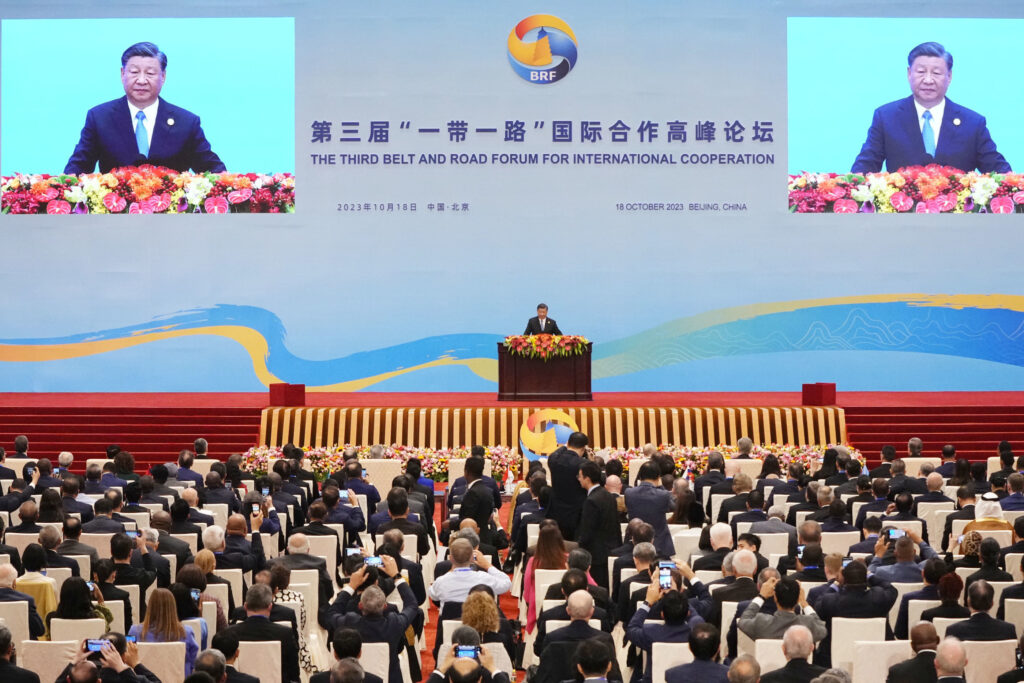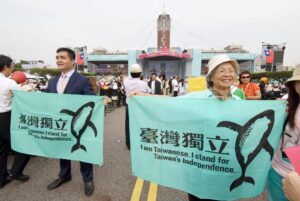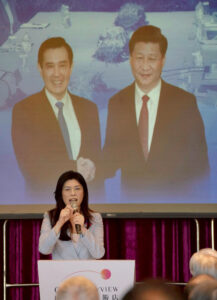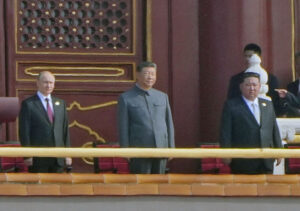Commentary
China Today:The Xi Jinping Administration Faces Various Dilemmas

In foreign policies, China also faces a big dilemma. On the one hand, Xi Jinping has to support Vladimir Putin, even though Xi probably does not agree with Putin’s invasion of Ukraine. A high-ranking official of the Chinese government visited Japan last year and told us the reason why China supports Russia, using the metaphor of the Romance of the Three Kingdoms. In 3rd century China, three kingdoms, Wei, Wu and Shu were contesting. This official said, “You Japanese like the Romance of the Three Kingdoms, right? You know, even though Wu and Shu have contradictions between them, they still need each other. You understand.” What he meant was, both Russia and China need each other despite their contradictions, in order to survive and win the competition with the bigger rival, the United States. So in September 2022, then CCP No.3 leader called Li Zhanshu, who used to be the chairman of the National People’s Congress, told his counterpart in Moscow that China understands and supports Russia and that China is providing assistance in the war with Ukraine. For most of the Europeans, Americans, Japanese and other nations, China’s support for Russia in the war with Ukraine is totally unacceptable.
On the other hand, the downturn of the economy has pressured China to approach those developed democracies and embark on a charm offensive. My Chinese friends would say, “The stability of our relations with the United States is the basis for the stability of everything in China.” China is trying to decrease the level of their economic dependence on potential adversaries but they know they still need the investments and technology from the US, Europe, Japan, and other countries. But this balancing act between Russia and us is very difficult and almost impossible.
As far as Japan-China relations are concerned, China’s policies are incredibly inconsistent from our point of view. Last year, the official media resumed their argument that the international status of Okinawa is undecided, since China has not signed the 1951 San Francisco Peace Treaty. Some scholars have stopped using the name Okinawa, and started calling it Ryukyu, which is a grave challenge to the post-WW2 international order. Also last year, the Chinese media and the Foreign Ministry hysterically criticised Japan for releasing the treated water from the Fukushima No.1 nuclear power plant into the ocean. Although I’m not a scientist myself, I thought this critique was rather unscientific and irrational. A Chinese Foreign Ministry spokesperson said that the water must be contaminated because the Japanese government decided to provide subsidies to the Fukushima fishermen for the decrease in their sales. Well, if people did not buy the fish because of harmful rumour then he was one of the culprits. Another big issue has been the arrest of a Japanese pharmaceutical company executive apparently charged with espionage. This is another example reflecting the dilemma between national security and development. On the other hand, a large number of local government missions have come to lure investments from Japan. And in the long run, if they really wanted to win the strategic competition with the United States, they know they must get Japan on their side. The Chinese say they want to improve relations with Japan. But what they do is attempt to change the status quo by physical force in the East and South China Seas.
From what I have told you, China clearly faces a lot of dilemmas, both internal and external, but actually, so do we in dealing with China. The security experts would say, “There’s no way we cooperate with China. If we did, we would make China more powerful. We must not cooperate with it.” But the economists and the business people would say, “If we did not cooperate with China, what will happen to our economy? Do you think we still would be able to compete with China? No way!” Which side is correct? Both are correct. So Japan for many years has been implementing a two-pronged approach of competing and cooperating with China at the same time. It is a contradictory approach, but we need the wisdom and resilience to live with this contradiction. For some, the two-pronged approach is psychologically unacceptable. And the dilemma will be felt more acutely as time goes by, since competition is likely to intensify, while cooperation widens and deepens. But this is the same for China. They also need to compete and cooperate with us simultaneously.
In order to strike the right balance, any country needs a politician with a broad and solid power base. He or she must be able to persuade both the hawks and the doves to go the middle way. But that’s not an easy task. I’m afraid the difficulty in stabilising our relations with China is likely to continue. And needless to say, partnerships with like-minded countries, like the one between the UK and Japan, are so important in facing this common challenge.






